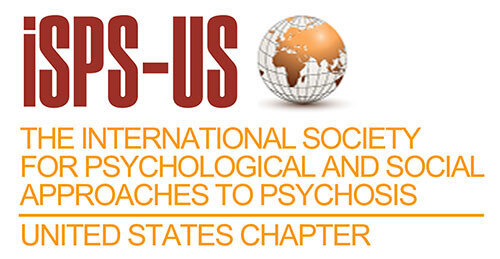
On November 27th, 2024, ISPS International released the following statement on assisted death, otherwise known as "euthanasia."
Please note the statement was not crafted by the US Chapter (ISPS-US) and therefore comments and discussion should be directed to isps@isps.org
ISPS Statement about Euthanasia (27th November 2024)
ISPS (the International Society for Psychological and Social Approaches to Psychosis) wants to alert the world to the dangerous evolution of allowing euthanasia or assisted suicide for unbearable mental suffering caused by psychiatric conditions. This raises complex medical, ethical, and societal/political questions that cannot be considered in isolation.
Psychiatric conditions are complex and dynamic, with the potential for change and improvement always present. A strong wish to die is often the result of despair and tunnel vision, not an irreversible prognosis. The role of caregivers is to counter this despair by maintaining hope, openness to alternatives, and a warm, continuous dialogue to understand the underlying issues. Giving up hope undermines the psychiatric profession.
In countries where euthanasia is legal, it places medical professionals in an impossible position – required to both protect life and facilitate death. This contradicts the Hippocratic oath and devalues the daily struggles and life-sustaining efforts of patients and mental health workers. Euthanasia sends a “death message” to the community, going against the basic human connection and solidarity.
Suicide and euthanasia have a profound impact on the person’s close environment. Autonomy is only possible in connection with others – “real autonomy” does not exist in isolation. Assisted suicide places sole responsibility on one person and leaves loved ones in guilt. Evidence shows no reduction in actual suicide rates in countries where euthanasia is legal.
There are concerning societal/political implications as well. The presence of euthanasia as an option can create subtle or overt pressure on vulnerable patients to choose death. It shifts societal values, normalizing the idea that life is negotiable and no longer inherently valuable. This echoes the past misuse of psychiatry for eugenics and the devaluation of certain lives.
In many countries, years of underinvestment in mental health have limited the choices and support available, leading people to despair. Every person has a human right to good mental health care, not a “right” to euthanasia. Given the stigma surrounding mental illness, the state must not change the ethical code to allow doctors to facilitate harm.
As the founder of the hospice movement, Cicely Saunders said, “if nothing can be done, there is still a lot to do.” Maintaining this core principle of preserving life and human dignity is the kernel question at hand.
An ISPS webinar is being planned on this topic, to facilitate discussion on this important topic. More news coming soon.
ISPS Executive Committee

